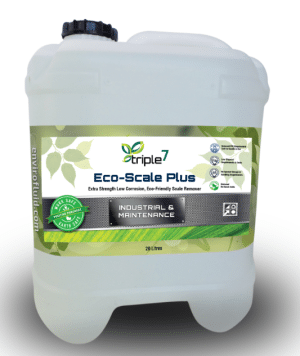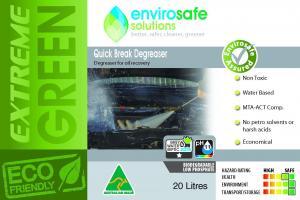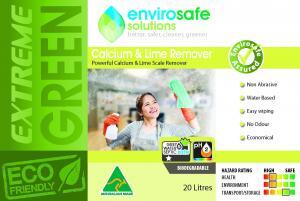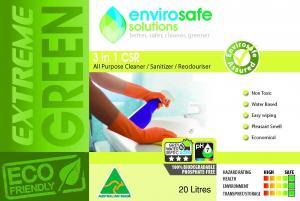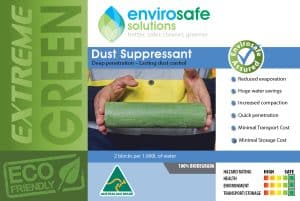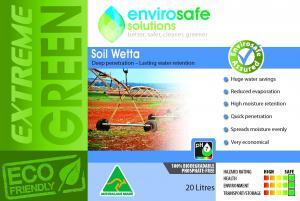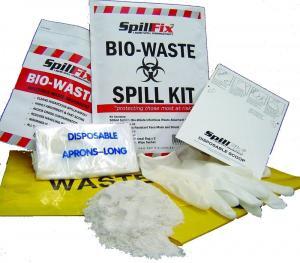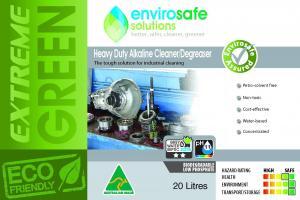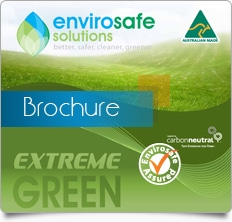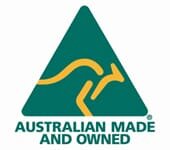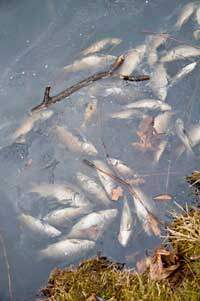 The fall-out from the widespread use of the now-banned chemical DDT was pivotal to turning the world’s attention to the inherent dangers of toxins in industrial and agricultural applications. The CSIRO has recently renewed its efforts to monitor the long-term environmental costs of Persistent Organic Pollutants (POPs), which include the notorious DDT. Today we look at the need for environmentally friendly liquids and the emergence of a new breed of industrial cleaning solutions such as those offered by Perth-based Envirosafe Solutions.
The fall-out from the widespread use of the now-banned chemical DDT was pivotal to turning the world’s attention to the inherent dangers of toxins in industrial and agricultural applications. The CSIRO has recently renewed its efforts to monitor the long-term environmental costs of Persistent Organic Pollutants (POPs), which include the notorious DDT. Today we look at the need for environmentally friendly liquids and the emergence of a new breed of industrial cleaning solutions such as those offered by Perth-based Envirosafe Solutions.
Toxic chemicals have left an indelible mark on the environment prompting a global push toward the use of safe, sustainable and biodegradable products.
The worst offenders have been common products containing Persistent Organic Pollutants (POPs), such as the wide-spread use of DDT as an effective pesticide in the first half of last century. Initially considered safe, concerns were raised after it was discovered prolonged use caused it to build up in the fatty tissue of mammals, including humans. More than twenty years after it was banned in Australia wildlife such as the Peregrine Falcon are still rehabilitating.
CSIRO monitors POPs effects
In March 2011 the CSIRO upped efforts to monitor the widespread environmental and health effects of POPs to quantify the success of the 2004 Stockholm Convention on Persistent Organic Pollutants. The convention, which was ratified by 172 countries including Australia, outlines protocols to reduce and eliminate emissions from POPs and their by-products. It requires:
- Control measures on 12 POPs including industrial chemicals polychlorinated biphenyls (PCBs), hexachlorobenzene and by-products dioxins and furans.
- Approval assessment for new and existing chemicals to consider effects of bioaccumulation, potential for long-range environmental transport and potential for adverse effects on human health and the environment.
CSIRO scientist Dr Melita Keywood said these pollutants were non-biodegradable, dispersed widely from the original source and accumulated in human and animal fatty tissue. “Some POPs can be transported through atmospheric dispersion to other regions and continents, thousands of kilometres from where they were originally used.” Data will be collected from atmospheric monitoring stations at sites in Tasmania, Melbourne and Darwin.
Data crucial to safer future
Environmental damage from common chemical applications needed to be monitored and minimised, according to Envirosafe Solutions. It supplies eco friendly liquid products to businesses within the automotive, mining, hospitality and corporate sectors as well as schools, hospitals and government enterprises. Director Murray Simon said toxic chemicals were not only hazardous but unnecessary. “Our products are primarily based on natural ingredients and they offer powerful results. Chemical usage carries hidden costs in terms of damage to the environment, health and the storage and transportation of dangerous goods.”
A better solution
Envirosafe Solutions’ range of cleaners include solvent-free degreaser, sanitiser/mould rid, porta-loo treatment, radiator cleaner, glass cleaner, diesel bug killer, rubber remover, multi-purpose lubricant and fuel conditioner. These environmental cleaning products offer a highly-effective yet sustainable solution.
The earth cannot afford a repeat of the 1950s DDT spraying disaster and efforts to monitor long-term POPs effects highlight the value of environmental cleaning products. Envirosafe Solutions provide eco-friendly liquid products for a comprehensive range of industrial applications. For more information phone 1300 88 90 70 or email info@evss.com.au.
Sources:
http://www.csiro.au/news/Ramping-up-our-POPs-monitoring-role.html









